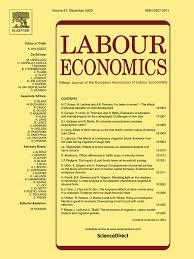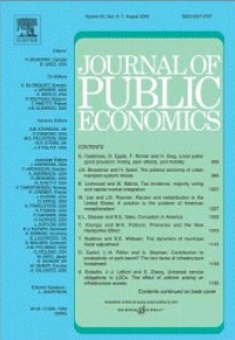
Preferred Field of Study and Academic Performance
in: Economics of Education Review, August 2023
Abstract
This paper investigates the impact of studying the first-choice university subject on dropout and switching field of study for a cohort of students in Germany. Using detailed survey data, and employing an instrumental variable strategy based on variation in the local field of study availability, we provide evidence that students who are not enrolled in their preferred field of study are more likely to change their field, delay graduation and drop out of university. The estimated impact on dropout is particularly strong among students of low socio-economic status and is likely to be driven by lower effort and motivation.

The Gender Reveal: The Effect of Sons on Young Fathers’ Criminal Behavior and Labor Market Activities
in: Labour Economics, October 2022
Abstract
Based on New Zealand’s administrative court charges data, we document child gender-specific differences in future criminal behavior of young fathers. The deterrent impact of having a son on the future likelihood of receiving convictions persists for as long as ten years post-childbirth. Utilizing population-wide monthly tax registers and Census data, we provide key insights into the role model hypothesis. We show that young fathers with a son have (i) a higher likelihood of being in employment, (ii) higher wages and salaries, (iii) lower benefit dependency, (iv) better qualification, and (v) a higher likelihood of being in a partnered relationship.

The Place-based Effects of Police Stations on Crime: Evidence from Station Closures
in: Journal of Public Economics, March 2022
Abstract
Many countries consolidate their police forces by closing down local police stations. Police stations represent an important and visible aspect of the organization of police forces. We provide novel evidence on the effect of centralizing police offices through the closure of local police stations on crime outcomes. Combining matching with a difference-in-differences specification, we find an increase in reported car theft and burglary in residential properties. Our results are consistent with a negative shift in perceived detection risks and are driven by heterogeneous station characteristics. We can rule out alternative explanations such as incapacitation, crime displacement, and changes in police employment or strategies at the regional level. We argue that criminals are less deterred due to a lower visibility of the local police.



